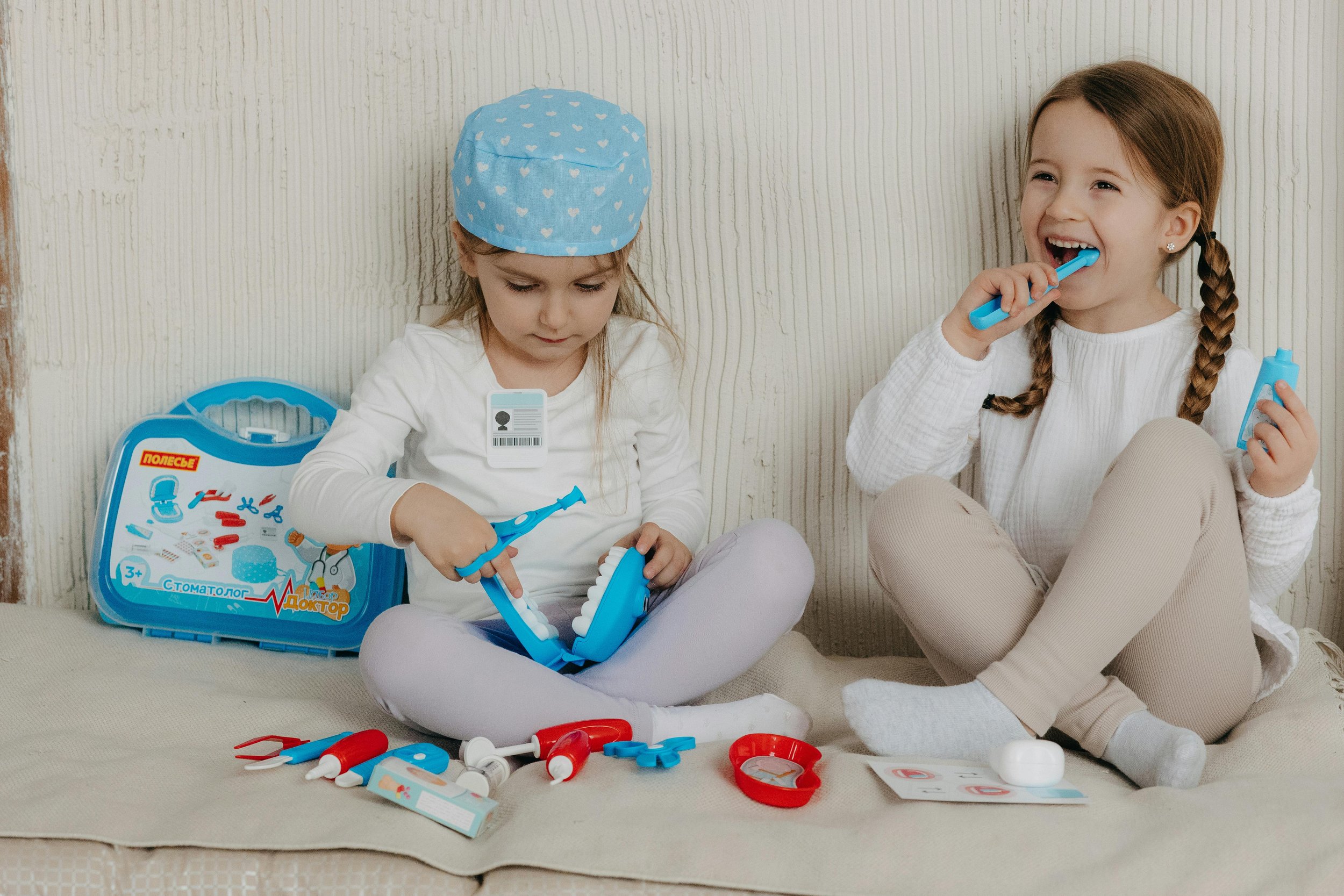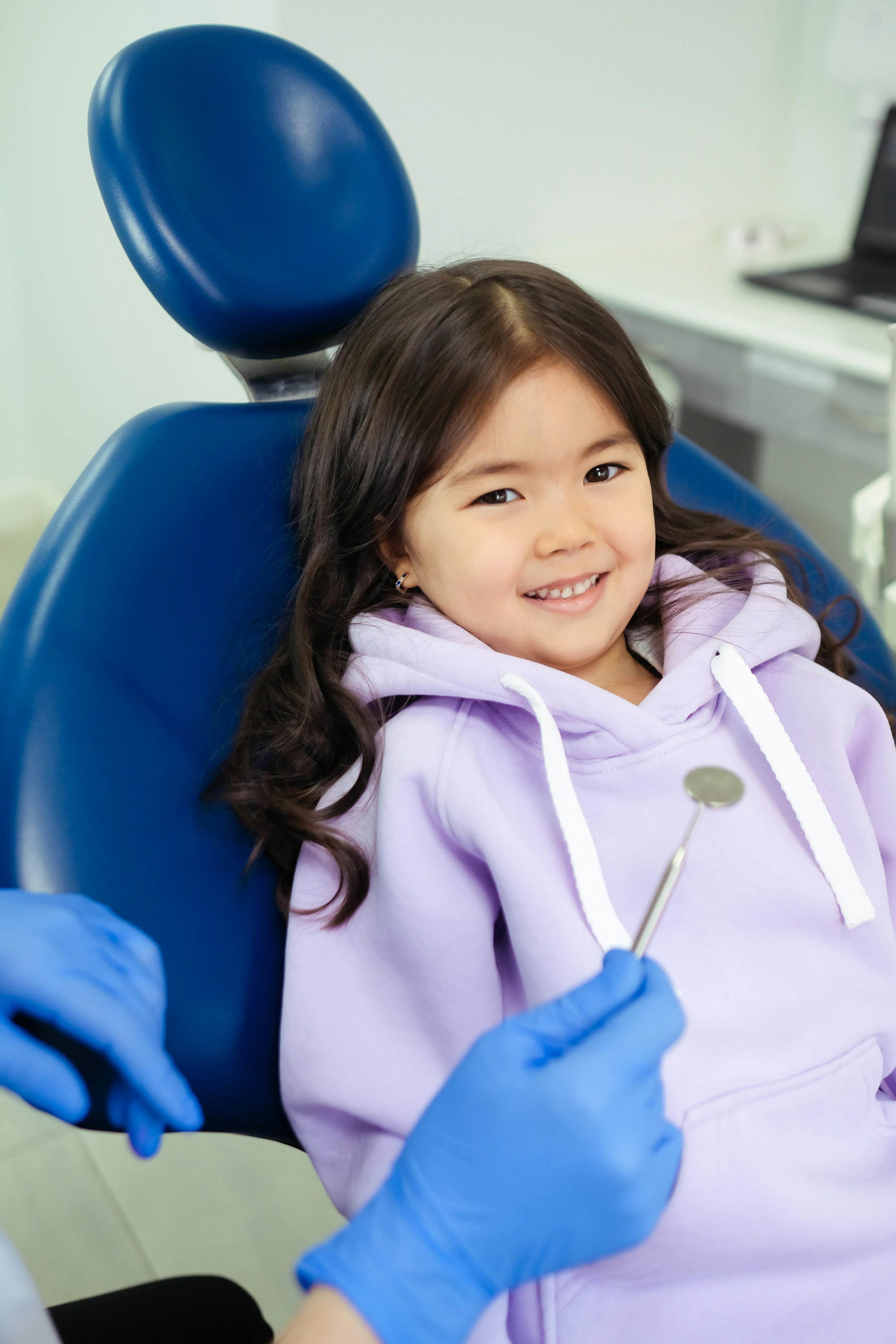
Children’s Dentistry
The American Dental Association (ADA), the American Academy of Pediatrics (AAP), and the American Academy of Pediatric Dentistry (AAPD) all recommend that children have an established “dental home” by their first birthday. It is important to help children develop healthy habits while they are young so their teeth remain strong throughout their lifetime.
At SRQ Dental we understand how important it is to keep kids smiling throughout their time with us. We want to show your children that the dentist really can be FUN! We always start by giving them their very own pair of "shades" and then letting them pick their favorite show to watch while we work. Their appointments end with a visit to the toy machines where they get a token to pick out a special prize for being so great!
Why are baby teeth important?
Parents often wonder why baby teeth matter since they eventually fall out. In reality, baby teeth play a vital role in your child's development! They help with eating, speaking, and they also hold space for the permanent teeth that will come in later.
While baby front teeth typically begin to fall out when a child is between the ages of 6 and 8, their primary molars usually stick around until they're 10-13 years old! If baby teeth become decayed or damaged, it can cause a child significant pain and potentially harm their emerging permanent teeth. Keeping those little teeth healthy is essential for your child's overall dental and physical development!
Eruption of Teeth
Children’s teeth actually begin developing before they’re born! By about 4 months, the first primary (baby) teeth to emerge are the lower central incisors, followed closely by the upper central incisors. While most children have all 20 primary teeth by the time they turn 3, the timing and order of eruption can vary.
Permanent teeth start coming in around age 6, beginning with the first molars and the lower central incisors. This process continues into the late teenage years, typically wrapping up around age 21. By adulthood, most people have 28 permanent teeth, with up to 32 if they have all 4 of their third molars (wisdom teeth).
Sealants
Did you know that 4 out of 5 cavities in children are found in the deep grooves of their back teeth (their premolars and molars)? Dental sealants are a clear or white plastic material that’s applied to the chewing surfaces of these teeth, creating a protective shield over those hard-to-reach areas. This helps guard against food, plaque, and acids that can lead to tooth decay. In fact, the American Dental Association (ADA) states that sealants can reduce your child’s risk of cavities by up to 80%!
Sealants are safe, effective, and minimally invasive. They’re simply brushed onto your child’s teeth, like applying nail polish—no drilling or numbing required!
Thumb sucking and pacifiers are both natural ways for babies to self-soothe, but if either habit continues for too long, it can impact the alignment of a child’s teeth and the development of their jaw (often creating an open bite). Pacifiers are often seen as easier to wean off than thumb sucking because parents have more control over when and how the pacifier is used. We strongly recommend discontinuing both thumb sucking and/or pacifier use by the time a child turns one to prevent any bite abnormalities.
Thumb Sucking and Pacifiers

“My boys had the best experience with Dr. Danielle Davis! Ended up my 7 year old needed teeth pulled from another dentist mess up. The entire time she was so calm and patient. We didn't have to be referred out. She is amazing and the staff also! Very welcoming!”
— Candice S.




